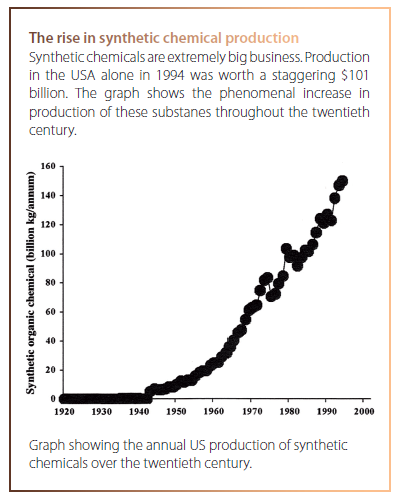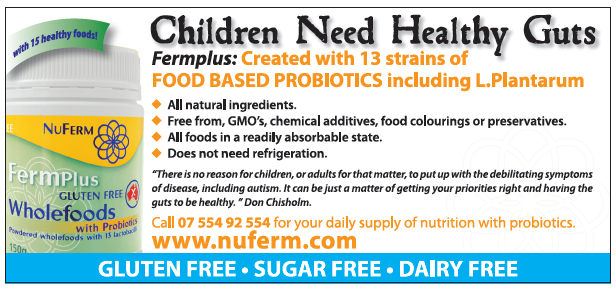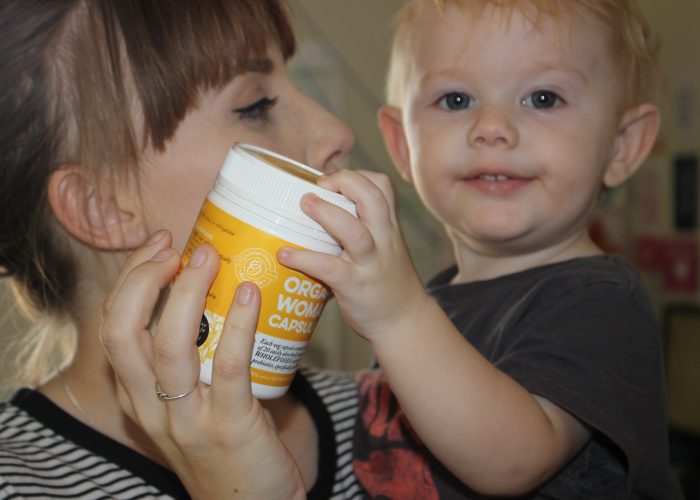
According to some experts, one in every 150 children has now been diagnosed as autistic. The US Department of Education claims that the rate is actually 1 in 67. And this isn’t even the worst of the news. Many reputable scientific studies have come to the same conclusion: we are causing this epidemic of autism ourselves. Twenty years ago, the rate of autism was estimated to be only 1 child in 10,000. How did we get from there to 1 in 67? What has changed?
Many believe it is due to better diagnostic techniques, but if that were the case, we would see the same number of 30-year-old autistic adults (1 in 67) as children. In addition, the current rates of diagnoses are for true autism according to the DSM IV – they do not even include those on the milder end of the spectrum such as children with ADD and ADHD.
So far, we are onto about three main causes for the alarming increase of autism spectrum disorders (ASD) including autism, ADD, ADHD and learning difficulties. Once we understand the underlying causes of ASD, we can take the right approach towards healing our children and our future society.
Cause 1: Vaccination Many doctors are willing to accept the close correlation between vaccination and the prevalence of autism. For example, in 1998, the work of Dr Andrew Wakefield was published in The Lancet. He asserted then that the MMR (measles, mumps, rubella) vaccination was a contributing factor to the development of gut problems in children, which led to a diagnosis of autism. Despite Dr Wakefield’s research and the publication of dozens of peer-reviewed articles that supported his original hypothesis, the MMR is still routinely given to babies and this connection is denied.
Many practitioners claim that there are no doubleblind clinical studies to prove the connection, so it’s just swept under the rug while more and more children are being diagnosed with this condition. The truth is that there are no trials that have properly investigated this question; there are no trials that study the effect of the multiple chemicals we inject into our children.
Why? Because almost all studies are financed by the drug companies that produce and profit from vaccines and therefore it does not make financial sense to perform studies that may cast doubt on the safety or effectiveness of any vaccine.
Cause 2: Our diet What are we putting into our children’s mouths? Parents who have woken up to the dangers of artificial colours, flavours and preservatives are now reading the labels of the foods they are purchasing. This small step alone is making a huge difference, but food companies are becoming more and more clever at hiding artificial ingredients and toxic additives. So just reading the labels is no longer good enough. Consumers need to become educated about what goes into the foods they eat and to ensure that they are buying good quality, (hopefully) organic foods that are as low as possible in pesticides, herbicides, GMOs and artificial food colourings, flavourings or preservatives as possible. They also need to ensure that they are buying less processed, closer-to-nature food products.
Cause 3: Toxic overload Today, we are being exposed to thousands of chemicals that simply did not exist a mere 20 years earlier. While our health can be affected by this toxic overload, our children and babies are even more vulnerable. In 2005, Dr Paula Baillie-Hamilton, a medical researcher, wrote Toxic Overload after two of her children developed autistic symptoms that she could not overcome with the conventional medical approach.
Probiotic and prebiotic functional foods are claimed to provide health benefits beyond the provision of essential nutrients.
Lancet 2009; 374:136:144
Her research uncovered a link between an increasing exposure to toxic chemicals and the current increase in chronic disease. She also found chemical triggers for many illnesses, including autism. Dr Baillie-Hamilton plotted a graph comparing the increase of chemical patents (the numbers of which have grown sharply in the last 20 years) with an increase in ill health worldwide. The graph showed quite clearly that as chemical exposure increases – so too does the rate of illness. It is frightening to think we now have over a million of these patented chemicals, many of which our children are exposed to every day.

The point that is denied or ignored by many of those in the mainstream is that our children are being harmed by this exposure.
1, 2, 3: A toxic combination How are the chemicals in vaccinations, our diet and the environment harming our children? What is this combination actually doing inside the body? For over a decade, I have been investigating the link between gut bacteria and health – including the gut dysbiosis so common in autistic children. What is abundantly clear is that chemicals such as chlorine, fluoride, pesticides, birth-control pills, alcohol and most of all antibiotics kill good gut bacteria.
But Dr Hamilton’s research helped me understand that there is a very broad range of chemicals that can affect the delicate balance of beneficial and pathogenic bacteria in our gut. When we develop an overabundance of pathogenic bacteria (dysbiosis), our gut loses its ability to process and absorb the nutrition from our foods. We can literally suffer from malnutrition despite a diet that seems to be healthy and nutrient-rich.
Because of our poor environmental management, our children have inherited a world that is full of toxins. Their food has more colours, flavours and preservatives than ever before. Their vegetables have fewer vitamins and minerals and are now sprayed with more herbicides and pesticides than ever before.
Add to this mix the various vaccines they receive and the thousands of chemical combinations they are likely to come into contact with and one starts to realise just why so many children now suffer from chronic disease.
What kind of a future are we creating for our children when so many of them ( 40% and more, according to recent Australian Bureau of Statistics reports), are suffering from chronic disease at very early ages?
Where does autism start? In her book, Gut and Psychology Syndrome (GAPS), Dr Natasha Campbell-McBride wrote that autism, ADD, ADHD and learning difficulties are all related; they all have a common cause – poor gut health.
This can be caused by common situations such as the use of antibiotics in early infancy or childhood; the use of other drugs or vaccines that can lead to gut dysbiosis; formula feeding, which denies an infant the proper bacterial balance found both on a mother’s breast and in her milk; and a poor diet lacking in foods that encourage a healthy gut such as organic or fermented foods. This situation can even start in the womb if the mother’s own bacterial system is out of balance.
In the article, Recipe for a Health Baby, I pointed out the importance of the quality of the mother’s gut bacteria and how this relates to the health of her child. When a baby travels down the birth canal, it gets its first introduction to bacteria. These bacteria are the baby’s immune system and its life support system for this vital early period of its existence. Without it, the child has very little chance of being totally healthy. The quality of these bacteria can only be as good as the quality of what is in the mother’s gut.
If a baby begins life with poor gut health, it will have poor digestion and nutrient absorption. Poor nutrient absorption means cells do not get what they need. If cells do not get what they need, they die.
With all the caesareans and drugs used during the birthing process in hospital births, many children start their lives with compromised gut bacteria. When these precious, already limited bacteria are bombarded with vaccinations and a host of other chemicals that are part and parcel of the way we live today, is it any wonder we have seen this alarming increase in chronic illnesses including autism?
What does it take for our children to be healthy? It is already common knowledge that many autistic children suffer from gut dysbiosis. And it is already known that the bacterium Lactobacillus plantarum in particular is missing in most autistic children. It is also well documented that when good bacteria are replaced in the gut of autistic children, their symptoms diminish and often cease altogether.
Karen Porter is the mother of two children who suffered from gut problems for many years. At a recent Mindd Conference she found someone selling a food-based probiotic. She administered it to her children and was amazed at the results: “My 8-year-old daughter was very weepy and ‘vague’ and my 7-year-old son exhibited all the symptoms of ADHD. Within 3 days of starting on this food based probiotic, their toileting issue disappeared. A short time later, their behaviour improved markedly. I am now taking these foods myself whilst breastfeeding my 6-month-old baby so I can give her the best start in life and hopefully avoid the problems my older children suffered”.
Another mother, Alice Gordon-Clark, has seen similar improvements in her son, Joel, who is in the autistic spectrum: “After starting on a food-based probiotic, Joel began to make eye contact. He also showed a huge improvement in his confidence levels and his general well-being as well. When we ran out of the product and started on a non-food-based product, we noticed an immediate regression and return of symptoms”.
I have seen huge changes in children who have used food-based probiotics with bacteria. If you are contemplating using a probiotic supplement, look for one that has over a dozen strains and, if possible, has pre-digested foods in it. These supplements are more beneficial than probiotics alone as there is a far higher chance of getting the necessary nutrients to the cells from the pre-digested foods. Some of these supplements do not even require refrigeration, making them very convenient.
There is no reason for children, or adults for that matter, to put up with the debilitating symptoms of diseases, including autism. Sometimes, it can just be a matter of getting your priorities right and having the guts to be healthy.
Don has been investigating the results from the use of food-based probiotics for many years. He lectures on the benefits of good nutrition and is in the final stages of completing a book on this subject. He is available for talks and can be contacted via this site.
Suggested Reading:
Sweet White Death, Informed Voice Volume 5 No 4, Feb. 2008, for a full explanation of the dangers of giving your autistic child refined sugar.
References:
- Ileal-lymphoid-nodular hyperplasia, non-specific colitis, and pervasive developmental disorder in children, AJ Wakefield, SH Murch, A Anthony, J Linnell, D M Casson, M Malik, M Berelowitz, AP Dhillon, M A Thomson, P Harvey, A Valentine, SE Davies, JA Walker-Smith; The Lancet Vol 351 February 28, 1998
- Informed Voice, Volume 6 No 1, June 2008
- www.mindd.org






